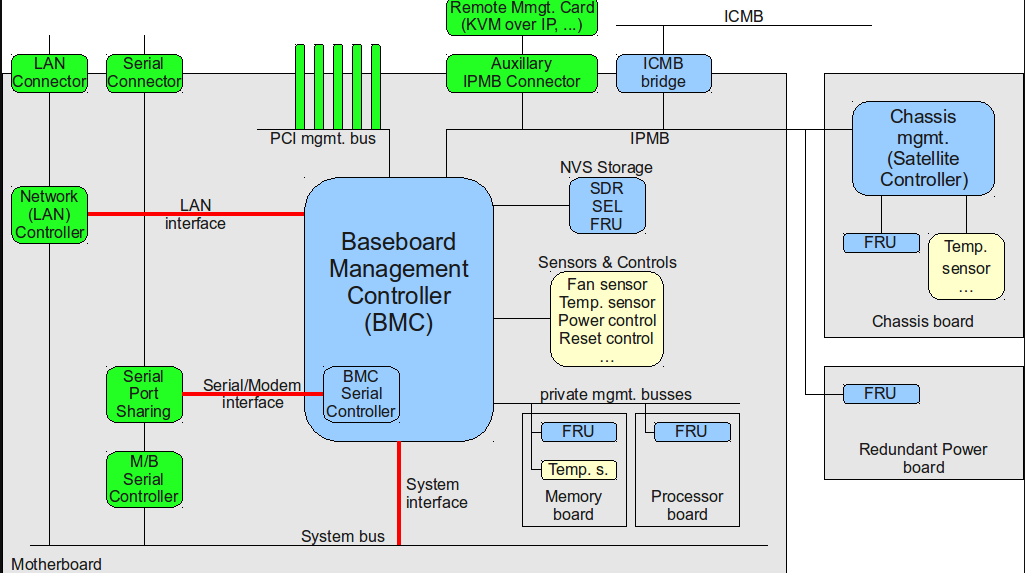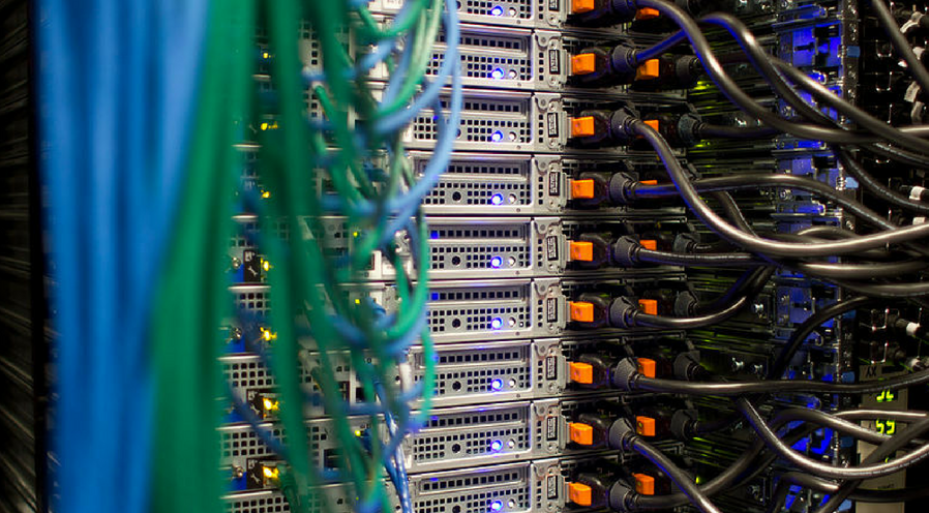IPMI, or Intelligent Platform Management Interface, is a technology that allows administrators to manage and monitor server hardware remotely. Furthermore capability is especially useful in data centers or enterprise environments where maintaining server uptime and reliability is critical. Originally developed by Intel, helps IT professionals perform various tasks like monitoring system temperatures, voltages, and fan speeds—even if the server is powered off or the operating system isn’t responding.
How do IPMI Functions?
IPMI works independently of the server’s operating system through a microcontroller called the Baseboard Management Controller (BMC). Moreover BMC gathers data from the server’s hardware and provides a remote interface for administrators. This means you can control and monitor the server over a network, using standard commands or a web interface.
Some of the key functions IPMI offers include:
Remote Power Control: Although You can turn the server on, off, or reboot it without being physically present.
System Monitoring: Similarly keeps an eye on hardware parameters like CPU temperature and power supply status, helping to identify potential issues before they lead to server downtime.
Event Logging: The BMC logs hardware events, allowing administrators to diagnose problems even after they occur.
Console Redirection: In addition feature lets you interact with the server’s console remotely, enabling you to perform tasks like entering BIOS settings or troubleshooting boot issues.
Why IPMI is Beneficial

Remote Management: One of the biggest benefits of is that it allows you to manage servers from anywhere, reducing the need for on-site staff and enabling quicker response times when issues arise.
Cost Savings: By allowing remote diagnostics and repairs, IPMI can reduce the need for physical interventions, which lowers operational costs—especially for companies with servers in multiple locations.
Enhanced Security: Additionally supports encryption and authentication to secure remote connections, ensuring only authorized personnel can access the management interface.
Nevertheless Improved Uptime: Therefore With real-time monitoring and alerting, IPMI helps prevent hardware failures from causing extended downtime. Issues can be addressed proactively before they impact business operations.
IPMI in Today’s Data Centers
In modern data centers, where high server density and uptime are crucial, plays a vital role. It enables centralized management of servers, no matter where they are located. This is particularly important in cloud computing, where servers might be spread across multiple data centers around the world.
IPMI also integrates with other management tools, allowing for automated responses to certain conditions. For example, if a server’s temperature exceeds a safe threshold, IPMI can automatically trigger an alert or shut down the server to prevent damage.
Challenges with IPMI
While offers significant benefits, it also comes with some challenges:
Security Vulnerabilities: IPMI has been targeted by security threats in the past. To minimize risk, it’s essential to secure the interface with strong passwords, updated firmware, and restricted network access.
Complex Configuration: Setting up IPMI, especially in large environments, can be complicated and time-consuming. Proper planning and thorough documentation are crucial for a smooth implementation.
Compatibility Issues: Not all servers support in the same way, and compatibility issues can arise when dealing with different server vendors and models.
Best Practices for Using
To get the most out of IPMI, it’s important to follow best practices:
Secure the Interface: Use strong authentication aAlso encryption, and restrict access to the interface to trusted networks only. Frequently upgrade the BMC firmware to ensure against known vulnerabilities.
Monitor and Set Cautions: Design to send cautions for basic occasions like equipment disappointments or temperature spikes. Frequently survey occasion logs to spot potential issues early
Document Everything: Ensure that your IT team is well-trained in using , and document all configurations and procedures to avoid mistakes and maintain consistency.
Test Regularly: Regularly test your setup, including remote power cycling and console access, to ensure everything works as expected.
IPMI and eTAZ Systems
At eTAZ Systems, we recognize the importance of in maintaining server reliability and performance. We offer comprehensive support for implementation, configuration, and ongoing management. Our team of experts is up-to-date with the latest technologies and can help you make the most of this powerful tool.
Whether you’re setting up a new data center, managing a fleet of servers, or improving the security of your existing infrastructure, eTAZ Systems provides end-to-end solutions. We guide you from initial planning and configuration to ongoing monitoring and support, ensuring that your servers remain operational and secure.
FAQs About IPMI
What is IPMI used for?
is used to remotely manage server hardware, including monitoring, controlling power, accordingly and accessing system logs, even when the server is powered off or unresponsive.
How does IPMI work?
operates through a Baseboard Management Controller (BMC), which collects sensor data and provides remote access to the server. Administrators can interact with the BMC via commands over a network.
Is IPMI secure?
While can be secure, it has been subject to vulnerabilities in the past. Proper configuration, including strong passwords, encryption, and restricted access, is essential to maintain security.
Can IPMI be used on all servers?
Not all servers support, consequently and compatibility can vary by vendor and model. It is important to verify that your server hardware is compatible with .
What are the benefits of using IPMI?
provides remote management capabilities, improves server uptime, reduces operational costs, and enhances security through real-time monitoring and control.
How do I access IPMI?
IMI can be accessed via a network using commands, a web interface, or specialized management software. Access requires authentication, and the interface should be secured to prevent unauthorized access.
Can IPMI be integrated with other management tools?
Yes, can be integrated with various IT management tools for automated responses to hardware events, centralizing server management and improving operational efficiency.
What is the role of eTAZ Systems in IPMI implementation?
eTAZ Systems offers comprehensive support for implementation, configuration, and ongoing management, ensuring that your server infrastructure remains reliable, secure, and efficient.
Conclusion
Finally IPMI is a crucial tool for modern server management, offering extensive control and monitoring capabilities that help maintain server uptime and reliability. At eTAZ Systems, we provide the expertise and support necessary to fully utilize for your organization. By following best practices and leveraging our extensive experience, you can implement a robust and secure solution that meets the demands of today’s data center environments.

Pingback: What Do Hardware Design Engineers Do? -